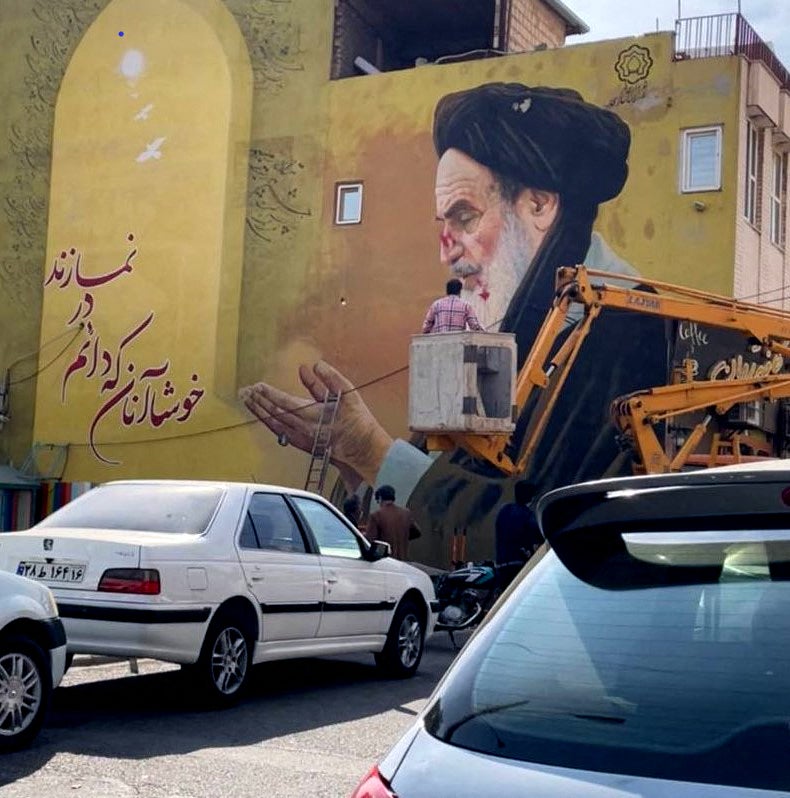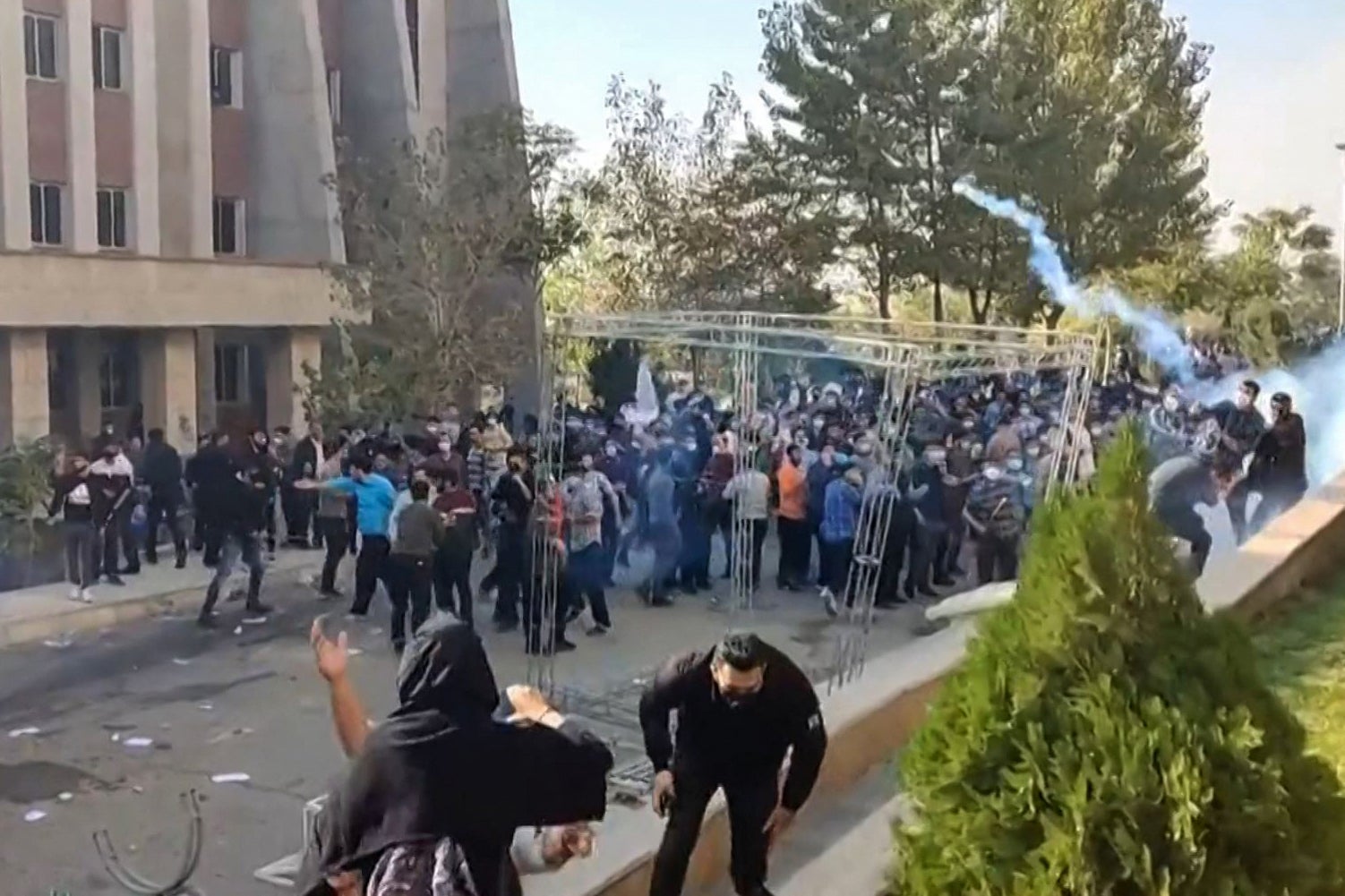Under increasing pressure at home, Iran lashes out at rivals abroad
Reports accuse Iran of plotting attacks against Saudi and US targets in the Middle East as tensions rise

Your support helps us to tell the story
From reproductive rights to climate change to Big Tech, The Independent is on the ground when the story is developing. Whether it's investigating the financials of Elon Musk's pro-Trump PAC or producing our latest documentary, 'The A Word', which shines a light on the American women fighting for reproductive rights, we know how important it is to parse out the facts from the messaging.
At such a critical moment in US history, we need reporters on the ground. Your donation allows us to keep sending journalists to speak to both sides of the story.
The Independent is trusted by Americans across the entire political spectrum. And unlike many other quality news outlets, we choose not to lock Americans out of our reporting and analysis with paywalls. We believe quality journalism should be available to everyone, paid for by those who can afford it.
Your support makes all the difference.As protests rage at home, Iran is lashing out abroad, threatening long-time rivals in an attempt to undermine opposition to the regime by claiming foreign subversion.
American news outlets late Tuesday cited unnamed Saudi and United States officials warning that Iran could be preparing an imminent attack on US forces or the assets of the kingdom in the Middle East. Iran has also seen increased border tensions with neighbouring Azerbaijan, which Tehran eyes as a regional rival close to Israel.
Iran has already launched artillery strikes in northern Iraq-based Kurdish militant groups that it has accused of fomenting unrest in the country. It has also accused Germany, which hosted a massive rally of Iranian exiles, of culpability in a 26 October attack on a shrine in the city of Shiraz that was claimed by Isis.
Analysts say the attempt at placing blame on outsiders for Iran’s domestic woes is meant to shore up support among regime loyalists.
“They are building up a case for their own supporters that foreign enemies have a direct hand on the ground for what is happening with the protests,” said Ellie Geranmayeh, an Iran expert at the European Council on Foreign Relations, a think tank. “That is not going to work with the protesters or with the general public, but it is aimed at ensuring that there is an external threat to keep the security apparatus loyal to them.”
Anti-regime protests triggered by the death in custody of 22-year-old Mahsa Amini have endured for 47 days, a time of unprecedented nationwide political unrest. At least 288 protesters have been killed by security forces and 14,161 arrested, according to Hrana, an Oslo-based human rights group. Another 36 members of the security forces have also died.
The violence and the cries of Iranians demanding the downfall of the regime have made international headlines and prompted public shows of solidarity by celebrities and Iranian expatriates worldwide.
On Tuesday, in response to a disturbing video showing security forces beating a protester until he is apparently dead, police announced an investigation.
“The police do not approve of violent and unconventional behaviour,” said a statement carried by local news outlets.
On Wednesday, a day of protests and a general strike began early in the city of Sanandaj, an overwhelmingly ethnic Kurdish cultural and commercial hub of nearly 500,000 which has been a hotbed of anti-regime sentiment for decades.
Video clips showed protesters burning tires, blocking roads and chanting slogans against the regime. Amini, who died after falling into a coma while in the custody of the morality police for allegedly wearing improper Islamic garb, was an ethnic Kurd, as have been numerous protesters killed by the security forces during the weeks of unrest.
There were also reports Wednesday of protests at university campuses and among high school students across the country, including in Tehran, Shiraz and Karaj.
“Damnation to Khomeini, death to Khamenei!” high school girls chanted in the western Chitgar district of Tehran, in reference to the founder of the Islamic Republic, Ayatollah Ruhollah Khomeini, and Iran’s supreme leader Ali Khamenei.
Making a rare public appearance, Mr Khamenei, 83, spoke on Wednesday to pro-regime high school students gathered from around the country.
“America has bases all over the world,” he told students. “These hands and legs of America will be shut down. Asia will become the centre of knowledge, politics and power.”

The regime Tehran finds itself increasingly isolated internationally. Few countries have rallied to Iran regime’s defence over the protests, which were originally sparked by opposition to the mandatory hijab. Across the world, only the Islamic regime in Iran and the Taliban in Afghanistan force women to wear Islamic headscarves.
Several nations, including Canada, have begun an initiative to boot Iran from a United Nations commission on women. The European Union and Germany are both eyeing possible sanctions against Iran’s Islamic Revolutionary Guard Corps (IRGC) for its role in the crackdown. Even Switzerland, famed for its neutrality, has begun an initiative to sanction Iran for selling Russia weapons that are used against Ukraine.
None of the news reports about attacks on Saudi or American facilities included details of allegedly threatening Iranian manoeuvres. No US or Saudi diplomatic outpost has reportedly updated its security guidance. US State Department spokesperson Ned Price said Tuesday the US is “concerned about the threat picture” but declined to elaborate about specific targets.
A propaganda video set to Hollywood blockbuster theme music released by Revolutionary Guard media channels on 31 October suggested Iran was preparing to deploy armed drones against US forces in the Middle East, Israeli cities, and an exiled opposition group. Though officially silent on the protests, Riyadh finances a popular London-based Iranian exile satellite channel that has rankled the regime. Iran has also accused the BBC Persian language service of playing a role in promoting the protests.
“The global media war of the last 50 days against the people Iran is unprecedented in its all-encompassing design, intensity, pervasiveness, and complexity.” Nour News, the mouthpiece of Iran’s powerful Supreme National Security Council, said in a tweet. “Passing this difficult and unprecedented obstacle requires the joint planning of the people and the government to solve the problems that have become a breeding ground for flies that have no other purpose than to attack Iran and Iranians.”
On Wednesday, Azerbaijan began military exercises on its border with Iran, which in recent weeks has also launched military exercises on its borders with Azerbaijan and Turkey.
Tehran accuses Baku of stirring up resentment among Iran’s Turkic-speaking Azeri population, which has joined in the weeks of nationwide protests. Tehran also likely worries about a transport line that Azerbaijan is building along the Iranian border that could be used to bypass Iran on trade between Europe and Central Asia.
Azerbaijani security forces this week announced the arrest of 19 Azerbaijani nationals accused of serving as operatives for the Iranian regime.

Despite its bluster, Iran is often cautious about making provocative military moves, often acting surreptitiously through proxies against US and allied forces in the Middle East. But some worry that the weeks of domestic unrest and international pressure have so rattled the Tehran regime that it could spark a conflict.
US officials have said attempts to revive a 2015 nuclear deal that would offer Iran sanctions release were all but suspended in the wake of the protests and apparent Iranian intransigence on several sticking points, adding to tensions. The apparent return to power of Israeli Prime Minister Benjamin Netanyahu, long an outspoken hawk on Iran, could also prompt an Iranian response.
“It’s not out of the question that there’s going to be an external conflict,” said Ms Geranmayeh. “On the regional front they can make things very uncomfortable for western partners on the ground.”



Join our commenting forum
Join thought-provoking conversations, follow other Independent readers and see their replies
Comments